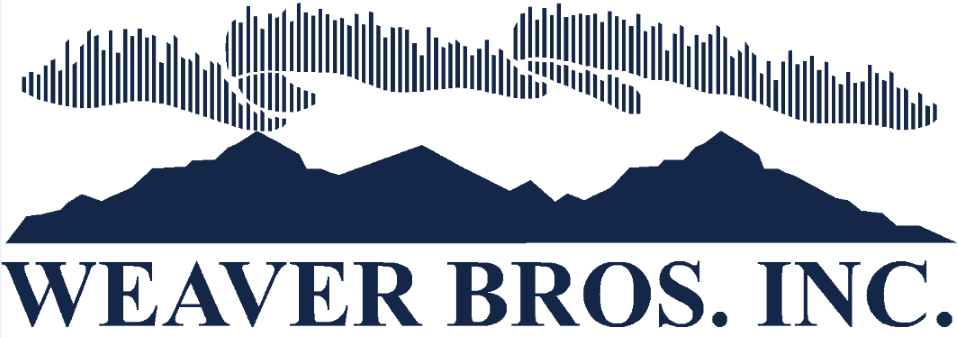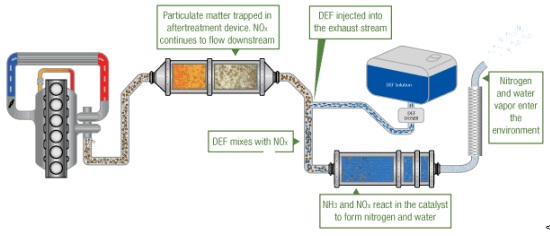The market for DEF is being created due to the new emission requirements promulgated by the EPA to meet the most recent Clean Air Act specifications. As depicted below the progressive reduction in diesel emissions has driven tremendous changes in engine requirements over the past 15 years. These efforts have been focused on reducing particulates, sulphur, and NOX emissions. DEF is focused on meeting the 2010 requirement for NOX emissions reductions.
The specific approach used to reduce NOX emissions requiring DEF is referred to as SCR or Selective Catalytic Reduction. SCR uses a chemical called Diesel Exhaust Fluid (DEF / Urea) and a SCR catalytic converter to significantly reduce nitrogen oxide (NOx) emissions in diesel engines. SCR has been selected by all but one major engine manufacturer (International being the exception) as their method to meet the 2010 specification.
Engine manufactures chose SCR over competing technologies due to the fuel economy benefits of SCR as compared with other options. SCR is expected to improve overall fuel economy by approximately 5%.
In summary DEF is:
• Diesel Exhaust Fluid (DEF) or Urea
• 32.5% Aqueous Urea Solution (ammonia) in demineralized water
• DEF consumption approximately 2% of fuel consumption
• DEF is a non-toxic, non-polluting and non-flammable substance.
• May have slightly pungent odor similar to ammonia.
• YES – DEF Does Freeze at 11 degrees F, and may need to be stored inside or in heated storage units
• SCR system is designed to provide heating for the DEF tank and supply lines.
• If DEF freezes, it can be thawed and used.
• DEF is not damaged or destroyed because it is frozen.
• SCR System will add ~200 lbs to each truck
• Maintenance, performance, drivability & durability the same as today
WBI has 3 trucks that run urea right now and our next 5 will be delivered by the end of the summer. This will help us lower emissions and provide a better air quality for everyone.

